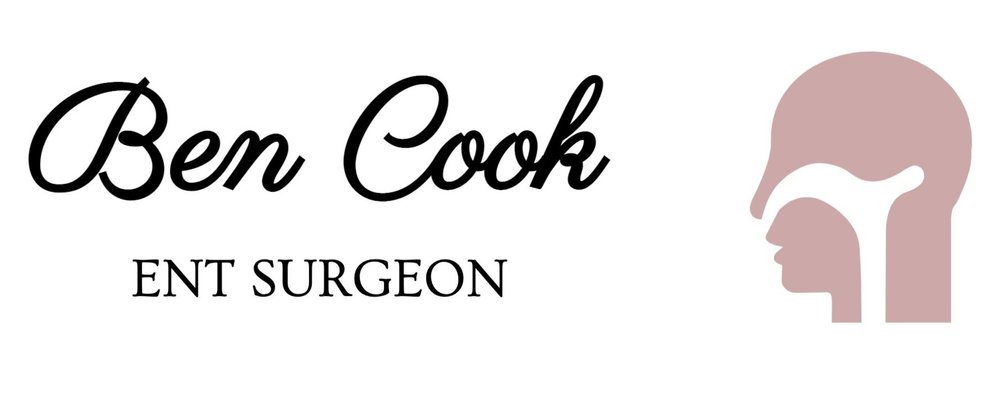Disorders of the Ears and Hearing
Hearing loss
Gradual hearing loss is considered a normal part of aging but if loss is sudden, unexplained or only in one ear. prompt medical help is often required. Associated symptoms such as dizziness or ringing in the ears can also be bothersome and require attention. It is very important that sudden changes in hearing (over days or weeks) are investigated with a hearing test (preferably first) and a visit to an ENT Surgeon.
Hole in the eardrum
(Tympanic Membrane Perforation)
Depending on the size and location of ear drum holes, they can cause hearing loss or be associated with ear discharge. Most ear drum perforations due to trauma will heal on their own but occasionally they need surgical correction. Sometimes ear drums perforate after infections or after sudden changes in pressure. Most ear drum surgery can be done down the ear canal itself or from behind the ear, using a patient's own tissues as a graft. Surgery is not very painful and can often be done as a day case. Successful healing occurs in 80-90% of cases.
Otosclerosis
An inherited cause of hearing loss, otosclerosis tends to cause gradual loss of hearing in the 20's and 30's and usually affects both ears. The condition causes a stiffening of the third hearing bone (stapes) and options for correction include surgery or a hearing aid. Surgery involves replacing the third hearing bone with a prosthesis. It is done under a general anaesthetic and can sometimes be done as day surgery.
Cholesteatoma
These are benign skin growths that occur in the ear drum that causes infections, discharge, hearing loss and sometimes pain. Cholesteatomas take a long time to grow and are often associated with a long history of ear problems. They can occur in children or adults and require surgery to fix them. Some cholesteatoma surgery is performed in multiple stages, depending on the location and extent of the disease. The hearing loss associated with the condition is sometimes permanent but each individual case is different. Workup includes thorough history and examination (often with a microscope) and investigation is with CT scanning and hearing tests.
Tinnitus
This is an extremely common and troubling symptom. It relates to the ringing in the ears that is usually associated with hearing loss. If it is associated with slow gradual age related hearing loss, it is best managed by an audiologist with a special interest in the condition eg: Dineen and Westcott specialist Audiologists. Another excellent resource is the Tinnitus Association of Victoria.
Noise in the ears that is pulsatile can rarely represent a more significant problem and warrants examination by an ENT surgeon. Hearing tests and occasionally scans are needed to clarify the diagnosis.
Prominent ears (Bat ears)
This is a common condition that is often inherited and can affect one or both ears. This is often best managed between the ages of 5-14, when the ear is fully grown but is still supple and responds well to surgery. It is important for children to be involved in the decision making process. For more information about this procedure, click here.
Dizziness
Extremely common and particularly troubling, dizziness is best managed by those with a special interest in the area. True ear-related dizziness is uncommon. Some excellent practitioners in Melbourne with an interest in dizziness are those at the Dizzy Day Clinics and Dr. Mark Paine, consultant Neurologist.

